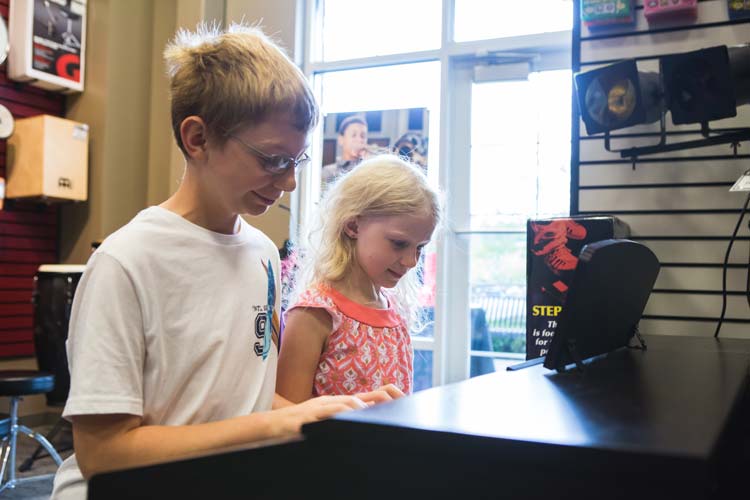April 09, 2015
Even More Tips for Finding a Music Teacher


If you’re thinking about enrolling your child in music lessons, finding the right music teacher is essential. They’ll introduce your child to the world of music, boost their self confidence, and stimulate their creativity, all while acting as a mentor. Last year, we gave you some great advice for choosing a music teacher, but we’re here to give you even more. From deciding exactly what you want to assessing the teacher, these tips should help you take the guesswork out of the selection process.
What Do You Want?
Would you head to the used car lot without knowing exactly what type of car you want? If you answered “no”, why would you go into this process without knowing exactly what you want? Start by asking yourself some basic questions, and writing the answers down. Here are some questions to help you get started:
- What would you like to accomplish with music lessons?
- What are your ambitions and goals?
- Are you more interested in the technical or social side of music?
- Do you want private lessons or are you okay with learning in a group setting?
- Would you feel more comfortable with a male or female instructor?
Now that you have these answers written down, it’ll make the rest of the process a little bit easier. For example, if you only want to work with male teachers, you’ll be able to filter out any females quite easily.
Where Can I Find Teachers?
There are several great resources available to parents and other individuals seeking music lessons, you just have to know where to look. If your child’s school has a marching band or orchestra, set up some time to speak with their instructor. They may be available for after-school lessons themselves and, even if they’re not, they likely have a network of teachers they can recommend. Local universities and colleges are another great place to look. Simply call their music program, explain your situation, and ask for a referral. If word-of-mouth or professional referrals don’t work out, check with professional organizations. If you need some help getting started, here are some organizations to check out. Did you know Music & Arts is a premier private music lesson facility? Learn more here.
Browse the Web
Whether you have a list of prospects or are barely getting started, spend some time researching teachers online. We live in the age of the internet, and this is beneficial for a few reasons: you can vet music instructors from the privacy of your own home and, if the educators post their rates online, you may be able to compare rates without ever having to pick up the phone. When you reach the website of a music teacher or school, look for student performance videos. Watch them for high standards. If you know nothing about music, email the link to a friend or family member and ask them if they think the students have a good teacher. If the school or teacher has a Yelp profile, read through the reviews, but take the negative reviews with a grain of salt.
What’s Important in a Music Teacher?
When it comes to teaching music, there are two credentials you should pay attention to: teaching experience and performance experience. It’s essential that your child’s music teacher is experienced in both areas, as your child is bound to perform in front of an audience down the line. If your child has their heart set on a particular genre, find out how much experience they have with it. Obviously, learning how to play a variety of genres is important, but if your child really wants to learn jazz and their teacher prefers folk, there may be an issue. If you’re searching for lessons for yourself, ask if they have previous experience teaching adults. If not, ask them how they feel teaching beginner adults. During this time, ask for references from current or past students.
Can I Ask for a Trial Lesson?
Whether you ask for a trial lesson or to sit in on one of their students’ lessons, it’s important to get a feel for a music teacher’s character and personality. Avoid teachers that don’t have a sense of humor or seem especially awkward interacting with children. Look for a teacher that “clicks” with you and your child. If your child can’t trust or relate to their teacher, their progress and enjoyment of their instrument will be limited. If a prospective teacher seems opposed to the idea of a face-to-face meet or a trial lesson, they may be trying to hide something. Avoid someone who hassles you or encourages you to sign up for lessons right away. If a music teacher doesn’t have your best interest at heart, keep looking until you find someone who does.
Once you find a teacher, you may want to consider finding someone who can fix your child’s instrument. Check out our tips for finding a qualified repair technician.







